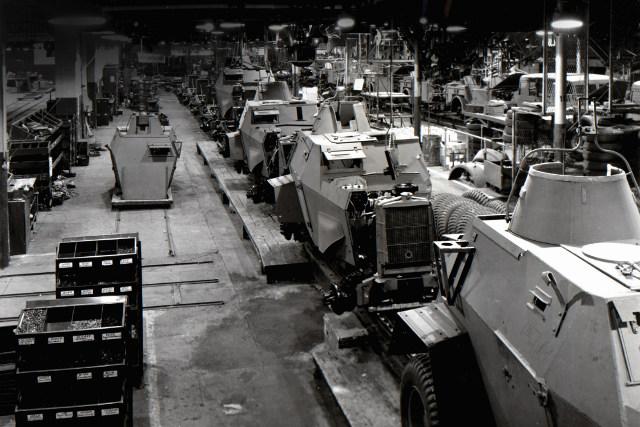Many car manufacturers became involved in the conflict immediately after it broke out; from Studebaker to Chrysler and Checker to Willys, they were all there to help. The production of the passenger vehicles was stopped by the government in 1942, giving space to every single factory to deal with war supply production. More than $10 billion were invested in war-related orders, shortly after the Pearl Harbor attack in 1944, while before the attack, the amount of money invested was at about $4 billion.
At this point in time, all car manufacturers began expending their factories, or converting them. Henry Ford II for example, built a new factory exclusively for airplanes, at Willow Run, Mich, while an Arsenal Tank plant was developed by Chrysler in Detroit.
Wartime production included 5.9 million weapons, 2.8 million tanks and trucks and 27,000 aircraft. Henry Ford alone, delivered almost 9,000 war-related orders and was capable of building a B-24 in less than an hour.
General Motors also had a huge contribution to producing armaments, vehicles and aircraft and signed more contracts and orders than any other company during the war. Worth mentioning are the fantastic Cadillac Tanks; military trucks and ambulances built by Dodge, Chrysler, the PT Boat and aircraft engines produced exclusively by Packard, including the V-1650 engine which powered the amazing P-51 Mustang fighter. Studebaker built the US6 truck, the M29 Weasel cargo and other crew carriers, the Journal Standard reports.
Many of the tank retrieval trailers and tank recovery vehicles came from the well known taxi cab factory, Checker. Hudson joined the efforts with its aircraft guns, engines, parts and the “Hudson Invader” engine, known having been used to power landing watercraft on D-Day at Normandy, June 6, 1944.
Many of the military appliances and other specific supplies were assembled by Nash-Kelvinator, while Henry Kaiser became a legend thanks to his California shipyard, where he built the “Liberty” and “Victory” cargo ships in very little time. The Jeep production included manufacturers Willys and Ford, between 1941 and 1945 and even today, Chrysler seems to keep the memory of the old Jeep alive, through its new and modern Jeep Wrangler.
Therefore, all auto manufacturers contributed to wartime production.
Greg Zyla writes for More Content Now and BestRide.com and can be reached at 116 Main St., Towanda, PA 18840 or at greg@gregzyla.com. If you have any questions related to wartime automobiles and old-school motorsports, don’t hesitate to contact him.
